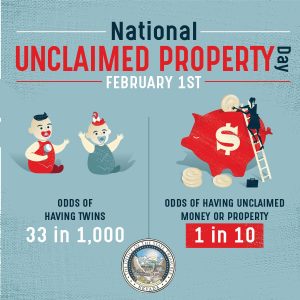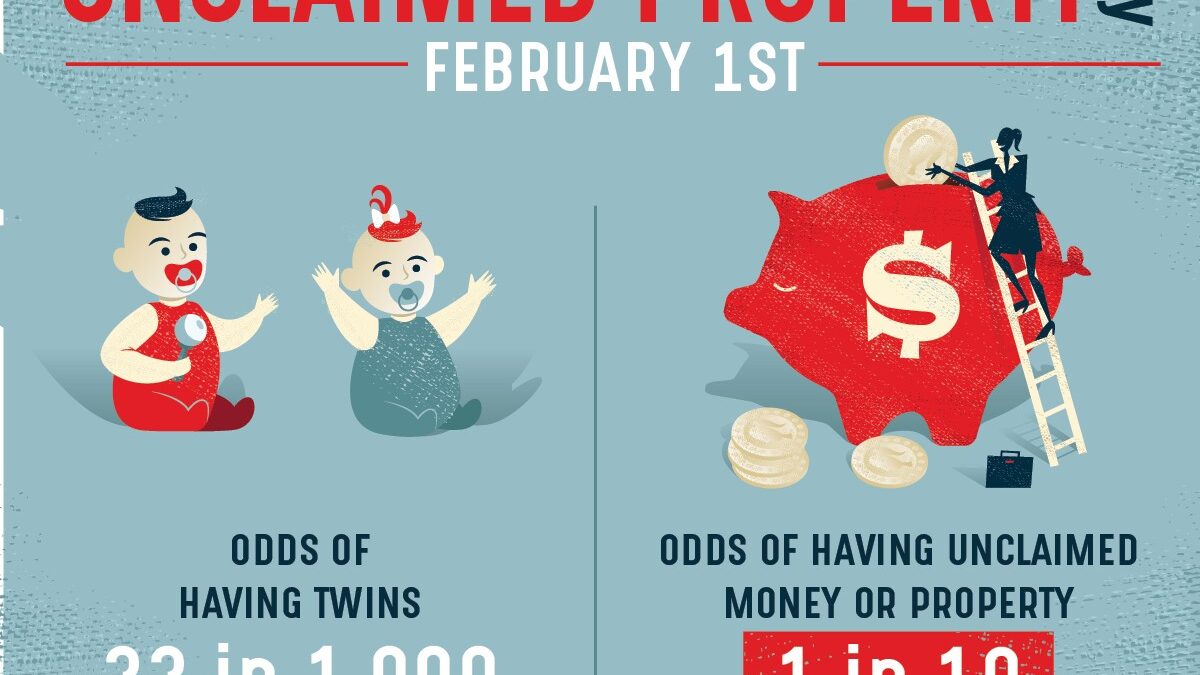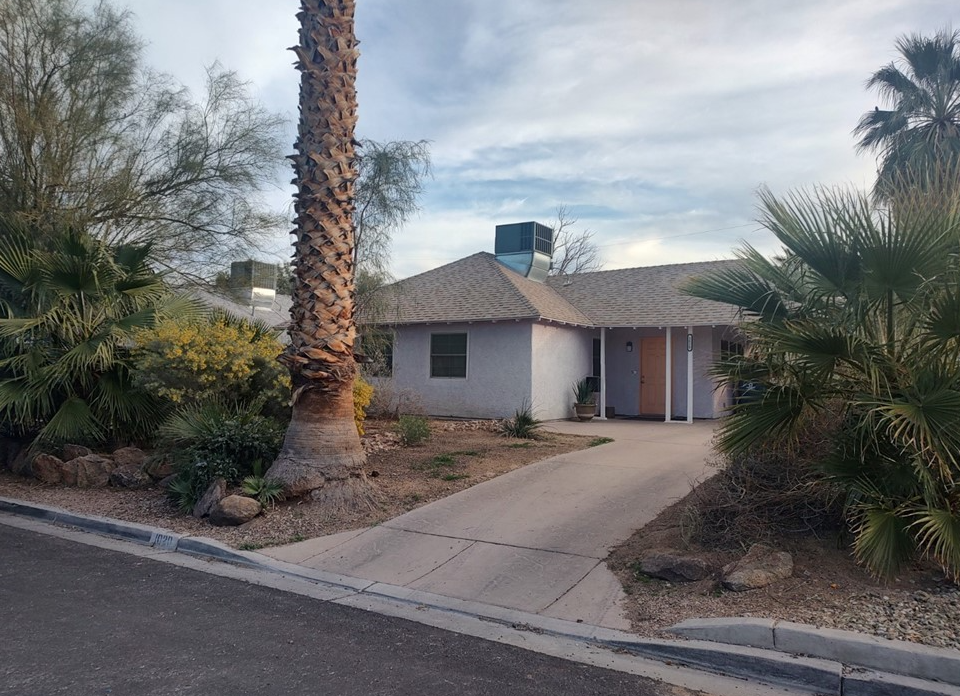 What “Property” Really Means
What “Property” Really Means
- Don’t let the name fool you! “Property” is the word we use to refer to cash, payroll, stocks, mutual funds, bank accounts, gift certificates, deposits, insurance proceeds, and other types of cash and cash equivalents. What it actually does NOT refer to is a physical property, such as real estate, cars, boats, etc. The only physical property that is subject to unclaimed property laws would be safe deposit boxes from a financial institution or a safe depository company.
Claiming Your Property
- Claiming your property could be as simple as filling out your information in our online claims portal and you are done or could be much more complex. It all depends on the individual circumstances. Often, the property we receive has been unclaimed due to someone passing away. Trying to determine who the rightful heir is can often involve reviewing wills, trust documents, or probate instructions and we have to follow legal rights of succession, just like any other items left behind by someone’s estate. We will often ask for additional information so we can verify that someone is who they claim to be and that they are the rightful owners. We work diligently to protect your money from being fraudulently claimed by someone else.
- You can claim your property on the Nevada Unclaimed Property Website.
Things to Know
- Unclaimed Property works closely with the Holders (companies) in receiving abandoned property. However, we only have the information provided to us by the holders. When we get complete and accurate information about the owners of the property, it makes it much easier to reunite owners with their properties. If we have very minimal information provided or incorrect information, it makes approving claims a much more difficult task.
- When we receive safe deposit boxes, we attempt to find the owners so we can return their actual physical belongings, but we can’t hold on to physical items forever, so after a year, we hold an auction and sell the physical belongings to the highest bidders. All proceeds from the sale remain in the owner’s account with the State. So while their physical belongings are not available after 1–2 years, the value of that property remains claimable indefinitely.
- We are also not in the business of being a stockbroker. Accordingly, for securities, such as stock and mutual funds, we use a custodian to hold these shares for a brief period so the actual shares can be claimed and returned to the owner. If the shares are not claimed or at the claimant’s request, the shares are sold and the proceeds of the sale remain in the owner’s account with the State. Again, the value of the proceeds remains claimable indefinitely.
How Property (Your Money) Ends up with the State
- All 50 states have unclaimed property laws. Any business or company (we call these “Holders”) that is holding money that belongs to someone else doesn’t just keep it. The property still belongs to the original owner. When a business can’t find the owner to return the money, after a period of time, generally a year or three years depending on what kind of property it is, the money is turned over to the State for safekeeping and to make available for the owner to find and have returned to them. Each year, Holders (companies) are required to file a report that lists out all of the property that has been abandoned (meaning they can’t find the owner) and also turns over the money that goes with it. The states collect the reports and the money so they can try and reunite it with the owners (what we call “Claimants”). The properties get remitted to the state of the owner’s last known address. This means all unclaimed property where the owner’s last known address was in Nevada, gets remitted to Nevada, regardless of where the Holder does business. Nevada holds your money indefinitely. Your right to claim your property never expires and passes to your heir through rights of succession.
Heir Finder (“Investigator”) Services
- There are companies across the country that will help people find their unclaimed property for a fee. While this is a legal service, we encourage people to reach out to the State directly first, as there is no charge by the state to process your claim. If you do decide to use an heir finder, Nevada is not a party to the contract, as it is specifically between the owner and the heir finder service. In Nevada, the legal limit that an heir finder can charge is 10% of the value of the property subject to the agreement.


 What “Property” Really Means
What “Property” Really Means


